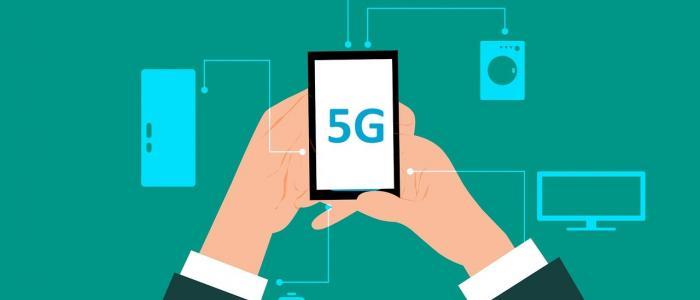Auction of 5G frequencies ended
Author: Thomas Wandler
Date: 14.06.2019
Purchase price of 6.6 billion euros
After about three months, the auction of the 5G frequencies has ended now. The auction brings the federal government significantly more money than expected – the total purchase price amounts to 6.55 billion euros. The buyers are the four providers Deutsche Telekom, Vodafone, Telefónica and Drillisch. This was announced by the Federal Network Agency.
The auction was the longest auction of German mobile radio frequencies to date. Experts had estimated the purchase price at only 3 to 5 billion euros. The money will go to the federal government, which wants to invest it in digitization – for example in broadband expansion in rural areas. The auctioning of frequencies is an important step for the introduction of the fifth generation of mobile phones for the fast internet.
At the mobile phone auction 2015, 5.08 billion euros were collected. The reason for the lower purchase price was that three instead of four network operators participated at that time. This year’s newcomer Drillisch drove the price up as a willing bidder.
Telekom gets the most
The majority of the frequency blocks goes to Deutsche Telekom: From a total of 41, 13 go to the telephone company. A total of 2.17 billion euros was paid for this. Vodafone receives 12 blocks for 1.88 billion euros and Telefónica 9 for 1.42 billion euros. Drillisch has bought 9 blocks at the auction for 1.07 billion euros.
Experts predict that the entry of Drillisch will certainly intensify competition on the German mobile communications market. This could be an advantage for the consumer, as prices may be depressed by the fierce competition.
5G
“5G” stands for the 5th mobile generation and is the successor of 4G, also called LTE. 5G can perform downloads much faster and has a lower response time, allowing data to be processed almost in real time and devices to respond to instructions without delay. This is very important for future technologies such as autonomous driving or telemedicine.
In this way, a car for example can react quickly if a vehicle in front starts slipping in a bend, and can also forward this information to the traffic behind it. Or a surgeon could use the 5G to perform operations from a distance via the Internet. 5G is also important for the industry – machines can be networked and production processes can be made more efficient.



Comments are closed.